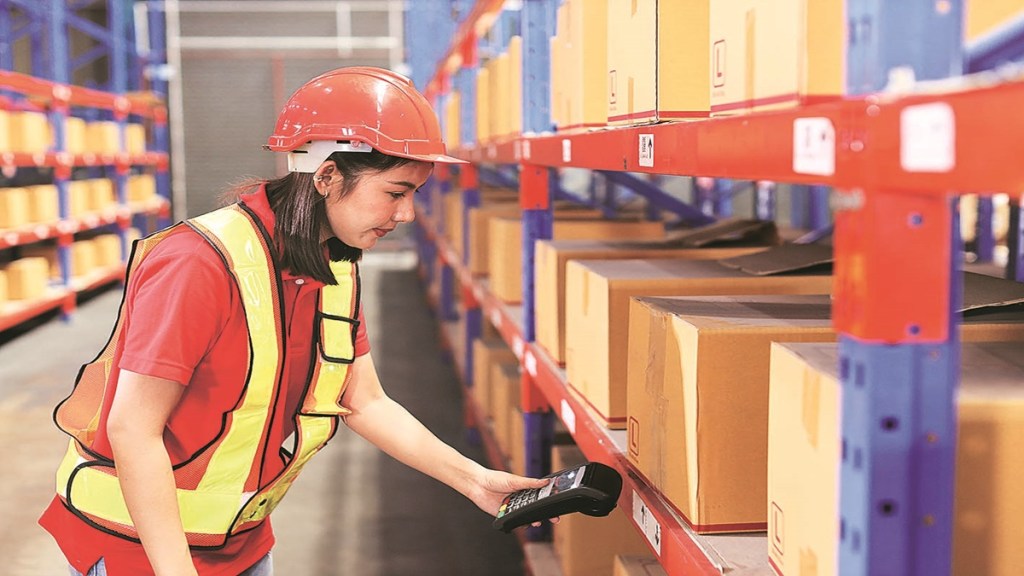Think RFID and a FASTag sticker, that is affixed to a vehicle’s windshield for electronic toll payment on national highways, comes to mind. RFID key cards are the modern day standard in hotels too, allowing guests to access their rooms without physically inserting or swiping a card. As supply chains grow in complexity, radio frequency identification (RFID)—a technology that uses radio waves to identify and track objects or people—is increasingly being adopted across industries, such as healthcare, retail, manufacturing, supply chain and logistics, to streamline operations and improve efficiency. Some of the Indian firms are integrating RFID with newer technologies like the Internet of Things (IoT), sensors, AI and ML to enhance its capabilities.
Apollo Diagnostics is actively integrating RFID technology into its supply chain as a core component of its broader IoT strategy. “The primary reason for adopting RFID and other IoT devices is to improve diagnostic accuracy and elevate the patient experience across our entire lab network. This integration allows for real-time data capture, continuous monitoring, and process automation, fostering a smarter, faster and more connected laboratory environment,” said Sriram Iyer, CEO, Apollo Health and Lifestyle.
Specifically, RFID tags and barcode-based IoT systems are being deployed for sample tracking and workflow automation. This ensures better traceability of samples from collection points to processing labs, effectively reducing sample misplacement and optimising turnaround time. This precise tracking also proportionately reduces medical errors. Furthermore, Apollo Diagnostics is installing IoT-enabled sensors in the bags of its field executives and home collection phlebotomists for continuous temperature and humidity monitoring throughout the sample journey. The benefits derived are multifaceted: beyond immediate sample tracking, RFID helps in ensuring cost savings too. “Future applications include consumable management and equipment tracking,” Iyer revealed.
Similarly, logistics firms are using RFID technology to track assets. “We have integrated RFID chips within our supply chain. As a global leader in international express shipping, our approach has always involved leveraging available technology to simplify and enhance the customer journey,” said Manish Patel, VP – Operations, DHL Express India. “The use of RFID proved valuable during the pandemic when the significant surge in e-commerce volumes, driven by restricted movement, required enhanced logistical capabilities. RFID deployment has allowed us to improve the visibility, accuracy, and security of shipments, refine our inventory management protocols, and elevate our high transit time efficiency,” he added.
A long-time RFID user, TCI Supply Chain Solutions (one of the business divisions of Transport Corporation of India) is focusing its efforts on expanding its capabilities to deliver efficient and reliable customer-centric services. Manoj Tripathi, CEO, TCI Supply Chain Solutions, said, “Integrating RFID with IoT devices will provide comprehensive real-time tracking throughout the supply chain, from origin to destination. Also, combining RFID with robotics and automated guided vehicles will facilitate fully automated warehousing solutions, reducing labour costs, storage & retrieval time.”
The automotive industry has also witnessed a surge in RFID adoption. “Our plant at Tapukara in Rajasthan is equipped with the latest technology to ensure quick turnaround times and higher efficiency. While the plant used the RFID technology previously, we have shifted to a more cohesive system using barcodes across our manufacturing and spare parts operations integrating it in our internal software as well,” a Honda Cars India spokesperson said.
This shift in technology has helped Honda Cars achieve higher stability in its day-to-day operations along with establishing quicker onboarding of suppliers owing to the technology’s universally accepted status. “Additionally, the ability to visually verify information supports quick manual checks providing practical advantage in fast-paced settings,” he added.
In its journey towards smart manufacturing, Hyundai Motor India uses RFID technology in its manufacturing ecosystems to redefine industrial operations like managing and tracking assets to ensure process adherence, streamline operations and ensure real-time traceability. Gopalakrishnan CS, whole time director & chief manufacturing officer, Hyundai Motor India, said, the company’s manufacturing facility, located near Chennai, is fully optimised to produce the entire range of Hyundai vehicles. Hyundai Motor India has established a strong pan-India presence with an extensive network of 1,366 sales points and 1,550 service touchpoints.
Cummins India has successfully integrated RFID technology across key areas of its supply chain. At the Cummins Phaltan Mega site in Maharashtra, RFID-powered automated truck tracking and turn around time monitoring have streamlined logistics, reduced manual dependencies, and helped to improve vehicle turnaround time. Shveta Arya, managing director, Cummins India, said, “RFID technology is enabling real-time identification and tracking of our assets, and is significantly enhancing our operational efficiency, accuracy, and security. We are also advancing the deployment of RFID for asset tracking at our suppliers’ end, reinforcing compliance and fostering transparency throughout our supply chain ecosystem.”
At Siemens factories in Kalwa, Navi Mumbai and Goa, various smart manufacturing technologies have been implemented to improve productivity, flexibility, quality and energy efficiency. “We use RFID technology extensively across assembly and production lines, achieving remarkable outcomes including over a 15% reduction in processing time through automated tracking systems and a massive decrease in asset verification time by almost 80%,” said Mahendra Wani, general manager, Electrification & Automation segment at Smart Infrastructure Business, and convenor of the Manufacturing Community at Siemens India.







